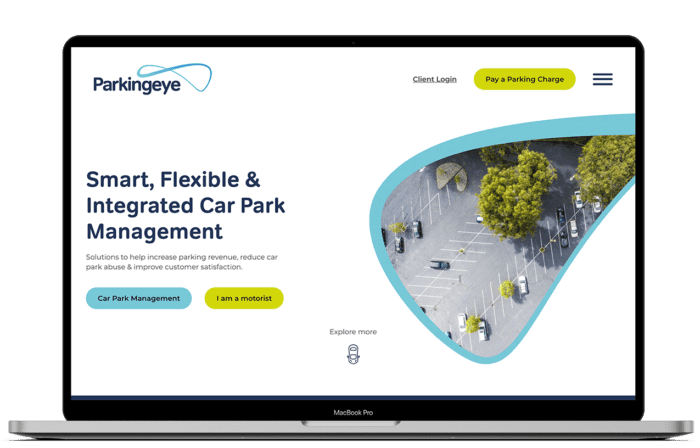
Navigating Google’s Helpful Content Update
Seen as a way of ensuring the cream really does rise to the top, Google’s Helpful Content Update (HCU), was an update that took place in August of 2022.
We’ll dive into more detail but essentially, the HCU was designed to ensure that high-quality content, which was written for people, not search engines, earned the greatest visibility in the search engine results pages.
Now, because the word ‘helpful’ is so subjective (one person’s helpful is another’s useless), there has been a lot of consternation and debate about this new update, which was built as Google’s biggest since the rollout of Penguin in 2012.
So here, we’ll look to clear those muddy waters, dispel the fears, and provide clarity about the HCU, including how you can benefit from it (after all, Google is looking to reward good content so as long as you do that and stick to some principles, you’ll succeed in the long term).
At Embryo, we have seen the positive impact that expert content can have on newly launched and existing sites and work to help brands, regardless of industry, meet Google’s requirements so that their search engine rankings, and organic traffic, increase.
To learn more, read on, then, why not get in touch with our digital marketing experts by phone at 0161 327 2635 or email at [email protected]?
Our Team Writes Content That Google Considers Helpful To Its Users.
To learn more about how we do this, get in touch today by phone at 0161 327 2635 or email [email protected].

After years of experience dealing with multiple agencies, I almost believed there wasn’t one out there that truly cared about the results delivered. Since engaging with Embryo to manage our PPC our business has gone from strength to strength, which has allowed us to scale at a healthy rate.

What is Google’s Helpful Content Update?
Essentially, the HCU is Google’s way of ensuring that work that goes onto websites is written with humans at the forefront, not just algorithms.
It was, and remains, all about making sure that high-quality, unique content appears at the top of search engine results pages (SERPs) over blogs and pages that use nefarious tactics and whose sole purpose is to just rank on page one, as opposed to providing a great user experience.
The HCU is there to weed out low-quality content on desktop and mobile devices that is unhelpful and doesn’t satisfy the user’s intent when they made that search, be it video content or text-based.
This rollout wasn’t a denigration of tried-and-true organic SEO tactics, such as natural keyword placement, internal and external linking, and strong header structure, it was about redressing the balance so that webmasters put value and usefulness right alongside those other features, whether they were targeting local audiences or those across multiple countries and territories.
We’ve all been there, how frustrating it is when you land on what you think is a helpful article only for it to be stuffed with keywords (which results in it making little to no sense) and have the answer you’re looking for be two-thirds of the way down the page.
What Our Experts Think About This Update
“The Google helpful content update, in my opinion, is a great step in the right direction by improving the SERP even further by prioritising useful and informative content that actually serves the user intent rather than focusing on ranking well because too many SEOs nowadays are churning out low-quality content just to rank highly and completely forget about the user.” – Jamie Beatty, Senior SEO Account Manager at Embryo

Why Is the Helpful Content Update Important?
This update was important at the time, and remains important now, because it was seen as Google recognising that it had, for too long, allowed unhelpful content to flourish across its SERPs at an international and local SEO level.
This was both a recognition and a promise that going forward, Google would be proactively seeking to reward and promote pages, articles, and blogs that helped users navigate through their buyer journey. For those who followed white-hat SEO techniques and spent real time on their digital marketing efforts, the Helpful Content Update appeared to be Google’s way of saying ‘We see you’.
In addition to rewarding that intent on satisfying their intended audience, the HCU also appears to be Google’s answer to the overuse of purely AI-generated content.
With the rise of Chat GPT and other generative language models, it has never been easier to ‘write’ thousands of words on a topic without having to do any kind of research or have any first-hand experience of what is being written about.
Again, Google has never said content that has had assistance from AI or search engine tools is bad, more that content written purely by artificial intelligence isn’t as useful as something written by real people with first-hand expertise.

What Kind of Content Does Google Consider Helpful?
So, we’ve established what the HCU is and why this major update is so important. Now let’s look at what Google means by ‘helpful’.
There are a couple of ways to view it – one is to look at the content itself and the second is to view the website in which the content is housed. Regarding the content itself, Google wants real expertise and unique, original insight that is up to date.
This starts with websites – be they a commercial e-commerce site or otherwise – zeroing in on the topic or industry that they have the most authority in and offering their expert insights, drawing on their experience and using that to inform what they say to their audience.
Example: What helpful content looks like
For example let’s say you run a travel website which reviews locations that people can visit on holiday, and you’re writing about visiting Manchester, England. A blog which satisfies the HCU would be written by an author who has been to Manchester several times and thus knows the area well, and has visited in the last few months. It would also be a piece which offers genuinely useful, unique advice that answers queries such as ‘best place to visit in Manchester’ or, ‘when is the best time to visit Manchester’.
This is ‘people first’ content and is all about ensuring the user leaves your site feeling like their query or question has been answered and/or they have learnt something new from someone who is an expert in that field.
Regarding the website in which the content is housed, insights are deemed even more helpful by Google if they appear on a website that loads quickly, isn’t riddled with pop-ups, and is secure. Putting in through technical search engine optimisation is just as important as the words themselves.
Latest
Latest News & Blogs
Helpful Content: 6 Best Practices
So you want to create helpful content but are not sure what that looks like. Fear not, below are six best practices that you can apply to all future content creation. Keeping these in mind when writing will ensure what you have is valuable content.
1 1. Write about what you know
If you’re a business that operates in an industry, look to write an abundance of content on the topics within that industry that you know the most about. Writing about what you know will ensure everything is coming from an authoritative place. Websites that do badly are those that spread themselves thin and try to cover multiple topics in the hope they rank for something. Focus on your niche.
2 2. Update old content
If you have an old website, comb back through your older content and see where it can be updated or refined. Updating and optimising your old work can give it a new lease of life, making it relevant again.
3 3. Be authoritative
Because you’re writing about industries or topics that you know about, be confident in what you’re saying. Write about your first-hand experience within a sector or industry that is unique and will show Google you’re offering fresh, valuable insight. Bring other authority figures in also, if there is a colleague with greater understanding, interview them, and get their insights.
4 4. Don't create a bad UX
There are few things worse than creating great content only to lay out the page in a completely inaccessible way and provide a bad user experience. As well as writing, focus on page speed, website security, and adding a variety of content such as videos and images.
5 5. Create actionable content
The work you create should help users complete an action, answer a question, or teach them something. Make sure the content answers the intent of the search term early, don’t create content for the sake of it, and ensure everything you write is of value.
6 6. Meet the intent of the user
Behind every Google search is intent, i.e. a reason for searching. The reason could be to purchase something, to learn about a product, to entertain, as well as many other things. When writing content for a key phrase, think about what the user is looking for. Then, assess the content that currently ranks for that term, this will help you decide how much you need to write. Finally, house all that in an easy-to-navigate website and you’ll have pages that truly meet user intent.
Helpful Content Case Study: How Embryo helped HSS hire Unlock New Audiences With Valuable Content
HSS came to Embryo in June 2022 wanting to unlock new audiences with fresh, innovative digital marketing campaigns.
Having seen a demonstration of our proprietary technology, Intermingle, which allows a user to view multiple search engine results pages for dozens of different keywords, HSS chose Embryo to assist them in creating content, using their £4,000 monthly budget.
We used our in-house tool Intermingle to help lead decisions on keyword priorities. Using it, we analysed all the commercial keywords that HSS ranked for with their product pages and determined which ones’ rankings we could improve with supplementary helpful blog content that would consequently drive traffic to those pages improving revenue for those SKUs.
Further, we searched forums such as Quora and Reddit for first-hand experience and inspiration for user-generated content that would ensure HSS were publishing genuinely unique work.
Content centred on solutions and in-depth guides that prioritised helping customers. For example, a user looking for stain removal tips would find HSS’s informative blog outlining the process and available solutions like carpet cleaners, increasing the likelihood of choosing HSS over competitors.
Through informative content, trust flourished, giving HSS an advantage over less educational competitors.
As a result of this value-led content strategy, there has been a remarkable growth in keywords ranking within the top 10 positions, rising by 794 from 12,686 to 13,480. There was also a substantial 17.79% boost in revenue, with figures increasing from £336,758 in July 2022 to £396,656 in July 2023. Additionally, the average order value saw a significant rise of 53.10%, ascending from £121.75 in July 2022 to £186.40 in July 2023.
Want Results Like HSS? Get In Touch!

Real Impact or a PR Exercise? What Impact Has the Helpful Content Update Had?
When it was announced, there was a great deal of chatter and noise about the update and what it could mean for websites. Many were hopeful that there would be a large redressing of the balance and that those websites that worked hard to create people-first content would be rewarded with better organic search rankings.
The reality was, to be honest, a lot smaller than what was promised by Google, and hoped by SEO professionals. Even after it had finished rolling out, only a few specific website categories were properly affected with others waiting and waiting for something that didn’t happen.
While there were examples of websites that duplicated lots of content across pages being punished and losing significant visibility the wider effect on Google Search was not there.
Many in the SEO community were disappointed and felt that this ‘update’ was more of a PR exercise by Google and an attempt to let their customers know that they were taking this issue seriously, without really doing anything majorly impactful.
However, some, like our Senior SEO Account Manager Jamie Beatty, did see the positive side of this update, however minimal the material impact may have been: ‘The real impact of the Google helpful content update has been to reawaken and realign SEO’s and other digital marketers priorities about the true power of content, and has helped to put more of a focus on why conducting good solid research to create high-quality content is so important to follow Google’s main purpose which is to consistently improve the SERP to create the best user experience possible.’
There was a good deal of self-reflection among those in the industry who felt that they had all fallen for the bait and ended up becoming a mouthpiece of Google and the HCU because they were sold a story that this upcoming update would be huge. At the time of writing, 77,900 web pages mention ‘The Helpful Content Update’, with only a handful of those sites coming from Google themselves.
This proliferation of stories and outreach for the HCU didn’t reflect previous core updates which did have a significant impact on the SEO industry such as Panda or Hummingbird. This led industry insiders to conclude that the HCU was more of a public relations exercise, designed to ward people off purposely creating duplicate, unhelpful or low-quality content, than a rollout of real substance.

Make Your Content as Helpful Possible
Whether the Helpful Content Update had a material effect or not is up for debate. Maybe it is too soon to tell, but it’s clear that this topic has put what makes ‘good’ content right in the spotlight of people across the SEO industry.
At Embryo, our feelings about the HCU are simple. With every piece of content we write, we must ensure that it is the most helpful, value-led piece of work that it can be. Plain and simple.
We think people overthink content and SEO, to be honest. While certain SEO principles need to be adhered to, at the end of the day, authors should focus on providing value.
Found This Content Helpful? Get in Touch Today.
To learn more about how we can provide your website with valuable, helpful content, get in touch today by phone at 0161 327 2635 or email [email protected].

After our digital results started to stagnate we were looking for an agency to help push us to the next level and achieve the results we wanted, and this is exactly what Embryo have and continues to deliver.











